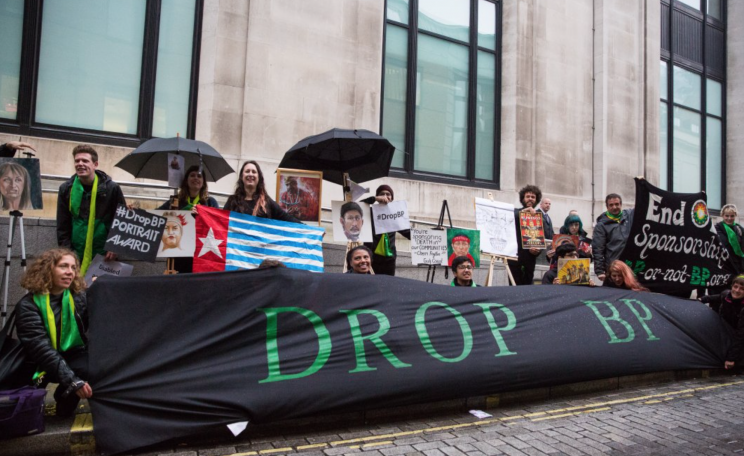-
The National Theatre has declared a climate emergency and is ending its partnership with the oil company Shell.
In a statement quoted in The Stage, a spokesperson for the theatre said: “Shell have been valued and longstanding supporters of the National Theatre, most recently as corporate members – this membership will come to an end in June 2020.”
Shell had been a Corporate Gold member of the National Theatre, giving the oil company access to exclusive perks and facilities at the theatre in return for £15,000 per year.
Climate emergency
The move comes after actors, artists and theatre professionals staged a walk-out of the National Theatre on September 20th, in support of the global climate strikes, and called on the National Theatre to step up to its responsibilities on the climate emergency and end its relationship with Shell.
This news came just two days after the Royal Shakespeare Company publicy announced the end of its long-running sponsorship deal with BP.
The RSC's Artistic Director Gregory Doran and Executive Director Catherine Mallyon said: "Amidst the climate emergency, which we recognise, young people are now saying clearly to us that the BP sponsorship is putting a barrier between them and their wish to engage with the RSC. We cannot ignore that message."
The ending of these two sponsorship deals in the space of three days increases the pressure on the shrinking number of UK arts institutions that still have promotional deals with fossil fuel companies.
Attention is turning in particular to the British Museum, where a BP-sponsored Troy exhibition is due to open on 21 November. Yesterday, activist theatre group BP or not BP? announced plans for a "mass creative takeover" of the British Museum on the exhibition's opening weekend.
Toxic
In a cheeky twist, the group are crowdfunding to build a Trojan Horse to bring to the event, which they believe will be the largest protest the museum has ever seen.
Sarah Horne of BP or not BP? said: “It’s deeply ironic that BP is sponsoring an exhibition called Troy: Myth and Reality, because this sponsorship deal is essentially a Trojan Horse for BP’s real activities. Just like in the myth, BP pretends that it’s giving us a gift, when in reality it’s trying to smuggle its deadly climate-wrecking business plans past the public’s defences.”
Speaking in response to the RSC's decision to drop BP, Chris Garrard, co-director of Culture Unstained, which campaigns for an end to fossil fuel funding of culture, said: "The Royal Shakespeare Company’s decision to drop BP as a sponsor years before the partnership was due to end is a clear sign that – in a time of climate emergency – fossil fuel funding is just too toxic.
"This seismic shift is down to the actors, activists and school strikers who have powerfully shone a spotlight on BP’s destructive business and how, even now, the company is 97% invested in fossil fuels."
Danny Chivers, from the activist theatre group BP or not BP?, said: "With both the RSC and the National Theatre ending their oil company partnerships, the remaining oil-sponsored institutions are looking increasingly isolated.
Rebel performance
Chivers continued: "It is simply no longer acceptable for any cultural organisation to be promoting and supporting the fossil fuel industry in the middle of a climate crisis.
"It’s time the British Museum, Royal Opera House, Science Museum, National Portrait Gallery and Southbank Centre followed the ethical leadership of the National Theatre and the RSC - otherwise they seriously risk losing their legitimacy in the eyes of a public that is only becoming more concerned about the climate emergency.
"We're looking forward to bringing a mass rebel performance and a Trojan Horse to the British Museum in November to continue this conversation."
This Article
Brendan Montague is editor of The Ecologist. This article is based on a press release from BP or not BP?
Image: National Theatre, Wikimedia.







